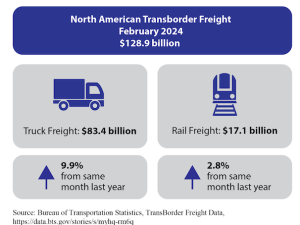The 18-month Green Mountain probe marks the third time in a dozen years that securities regulators have looked at the accounting practices of a company that used Chicago-based M. Block to store and help deliver its products to major retailers.
One of the previous investigations led the SEC to charge former Sunbeam Corp Chairman Albert Dunlap with overseeing a massive accounting fraud. The other case involved mobile technology accessories maker iGo Corp, whose executives were charged with inappropriately using M. Block's services to record revenues ahead of schedule.
Neither M. Block nor any of its employees has been charged with wrongdoing as a result of the three investigations. But in the Sunbeam and iGo cases, court records show SEC lawyers interviewed M. Block executives about the company's procedures for warehousing and delivering goods for its customers.
Green Mountain has disclosed in regulatory filings that the SEC has asked questions about its business dealings with M. Block and about the terms of its contract with the distributor.
Century-old M. Block's warehouses serve as the main distribution points for Green Mountain's single-cup coffee products to big retailers like Macy's Inc and Bed Bath & Beyond Inc. Critics, including short-sellers betting on a decline in Green Mountain's shares, have raised concerns that the company relies too much on M. Block to get these items to market.
Experts say it is not unusual for regulators looking into allegations of improper accounting practices at a consumer goods company to examine its relationship with its distributors, especially ones on which it is heavily dependent.
Fast-growing Green Mountain said in 2010 that M. Block had "processed" about 43 percent of its consolidated net sales. "The inability of M. Block to perform its obligations" because of a systems problem or a deterioration in its finances "could result in significant losses," Green Mountain said in a regulatory filing.
Manufacturers can use their distributors to improperly boost revenue by making shipments to or from their warehouses at inappropriate times. In an accounting probe, one thing regulators look for is evidence that a company is trying to juice its earnings by improperly recognizing revenue before a product is actually sold.
Green Mountain has said regulators have inquired about its procedures for recognizing revenues from sales. The company, which makes most of its money from a single-cup coffee product, says it does not record a sale until the product leaves its distributor's warehouse to be sold either by a retailer or directly to a customer, which experts say is not uncommon in the industry.
The accounting practices that Green Mountain uses for products that are stored on "our property and on other properties, including fulfillment companies like M. Block" are appropriate, said Suzanne DuLong, the company's head of investor relations.
A lawyer for M. Block did not return calls and emails seeking comment. M. Block Chief Executive Officer Bruce Levy also did not return several phone calls.
An SEC spokesman declined to comment on the Green Mountain investigation.
So far, the Green Mountain investigation has not resulted in any charges against the coffee company or its employees.
But the ongoing probe has provided fodder for shareholder lawyers and prominent hedge fund managers like David Einhorn, who have raised questions about Vermont-based Green Mountain's accounting practices and its reliance on M. Block to distribute its products.
Einhorn, in an often-cited presentation last October, blasted Green Mountain's bookkeeping and said the company and M. Block were "potentially engaged in a variety of shenanigans that appear designed to mislead auditors and to inflate financial results." He said he had interviewed former M. Block empl








